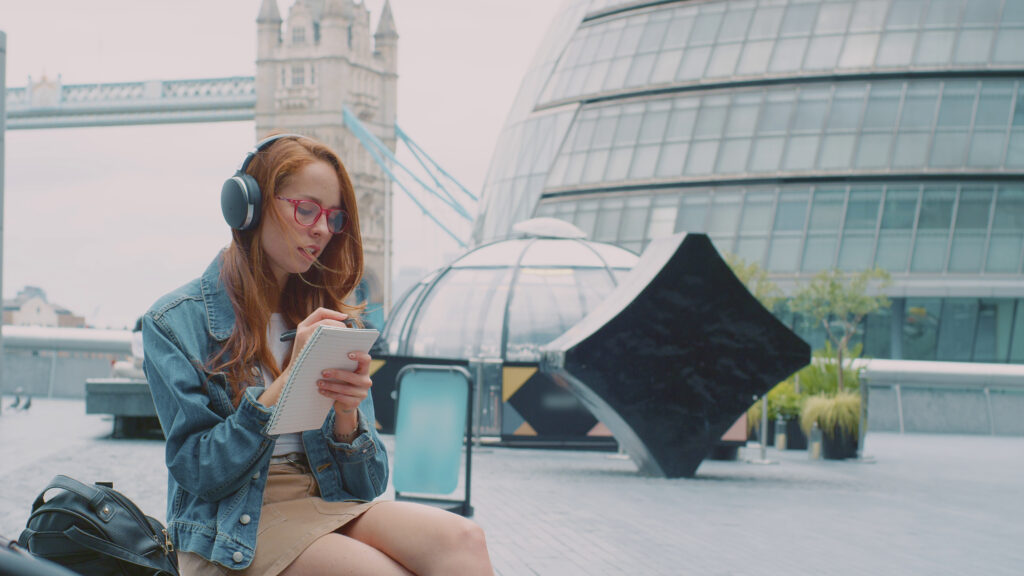In a world that’s constantly rushing, it’s no wonder travelers are starting to push back.
Welcome to the rise of slow travel, a movement that values meaningful experiences over jam-packed itineraries. It’s not about how many countries you can hit in two weeks; it’s about how deeply you experience the places you do go.
So what exactly is slow travel, and why is it taking off in 2025?
Let’s break it down.

🌍 What Is Slow Travel?
Slow travel is a mindset that prioritizes depth over speed when exploring the world. Rather than hopping from city to city every day, slow travelers stay in one place longer, absorb the local culture, and connect more meaningfully with the people and environment around them.
It often includes:
- Staying in locally owned accommodations
- Using public transit, biking, or walking
- Shopping at local markets instead of tourist traps
- Spending more time in fewer destinations
- Seeking out authentic, off-the-beaten-path experiences
It’s not about how far you go, it’s about how present you are while you’re there.
⏳ Why Is Slow Travel Gaining Popularity?
Several cultural shifts have made slow travel more appealing than ever in 2025:
1. Post-Pandemic Priorities
After years of restricted travel, people now crave intentional travel. It’s no longer just about collecting passport stamps, it’s about personal growth, connection, and well-being.
2. Burnout from “Checklist Travel”
Many travelers have realized that rushing through cities just to say they’ve “been there” leaves them exhausted and underwhelmed.
3. Rise of Remote Work
Digital nomads and remote workers can stay longer in one place, allowing them to explore slowly while working from anywhere.
4. Environmental Awareness
Frequent flights and mass tourism have taken a toll on the planet. Slow travel emphasizes sustainability, fewer flights, more local support, and less waste.
💡 Benefits of Slow Travel
✅ Deeper Cultural Immersion
When you stay longer in a destination, you go beyond the tourist facade. You find local hangouts, attend community events, and learn the rhythm of daily life.
✅ Less Stress, More Joy
No rushed airports, no packing up every other day. Slow travel lets you unwind, explore at your own pace, and truly relax.
✅ More Meaningful Connections
You have time to talk to locals, form friendships, and even give back to the community through volunteer or eco-tourism efforts.
✅ Lower Costs Over Time
Longer stays often mean cheaper nightly rates, less money spent on transit, and fewer costly excursions.

✈️ How to Practice Slow Travel
You don’t have to be a digital nomad to travel slowly. Even if you have a week off, you can embrace the slow travel ethos.
Here’s how:
🧳 Choose One Destination Instead of Five
Rather than packing multiple cities into one trip, focus on one location and explore it deeply.
🏡 Book a Local Stay
Skip the major hotel chains. Look for guesthouses, Airbnbs, or family-run inns that support the local economy.
🥘 Eat Where Locals Eat
Avoid tourist menus. Find the neighborhood bakery, food truck, or mom-and-pop restaurant that locals love.
🚶♀️ Walk or Bike When You Can
It’s better for the planet, plus you’ll probably discover little things you’d miss in a car.
📝 Learn Basic Phrases in the Local Language
It shows respect and helps create real connections, even with just a few words.
🌱 Is Slow Travel More Sustainable?
Yes! And that’s a big part of its appeal.
Slow travelers often:
- Fly less and stay longer
- Use public transportation
- Avoid over-touristed attractions
- Support small businesses
- Reduce waste by shopping and eating local
In short, they tread lightly, leaving a smaller footprint while giving more back.

🧘♂️ Final Thoughts: Travel That Feels Good
In 2025, slow travel isn’t just a trend, it’s a movement. One that says, “I’d rather truly know one place than barely experience ten.”
So whether you’re planning a big international adventure or a weekend getaway close to home, ask yourself:
What if I slowed down and made this trip about quality, not quantity?
Your memories (and your carbon footprint) will thank you.


Leave a Reply